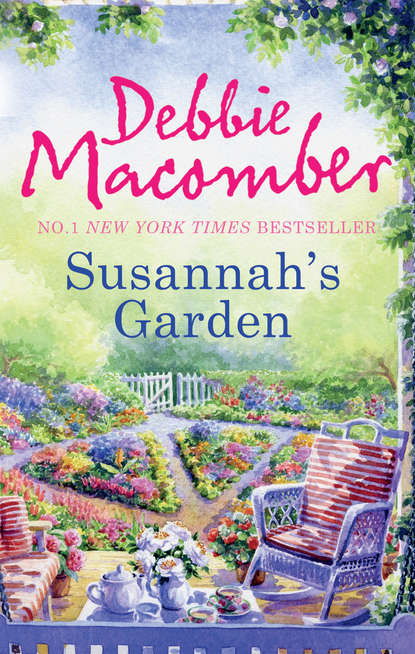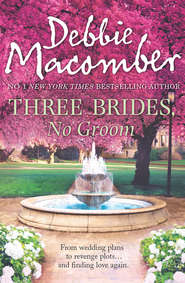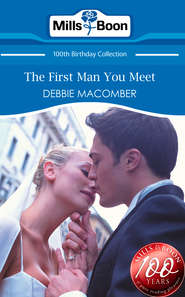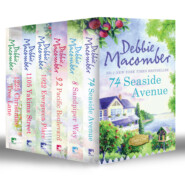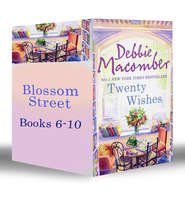По всем вопросам обращайтесь на: info@litportal.ru
(©) 2003-2025.
✖
Susannah's Garden
Автор
Год написания книги
2019
Настройки чтения
Размер шрифта
Высота строк
Поля
“And when we get back, you’ll phone Carolyn.”
“Yes, Mom, I’ll phone Carolyn tonight.”
CHAPTER
5
Carolyn Bronson was thrilled to hear from Susannah Leary—no, Susannah Nelson. Naturally, she’d hoped Susannah would phone, but for reasons that were hard to explain, she hadn’t expected her to. It’d been years since they’d last talked, twenty-five years at least. Decades. Now as she drove into town to meet her, she peered through the windshield looking for the tavern the men from the mill frequented most. Less than a mile down the road from Bronson Mill, it was the only place she could think to suggest.
When Susannah called an hour ago, they’d had so much to say that it took nearly thirty minutes to get off the phone once they’d agreed on a place to meet. They had a lot of years to catch up on, and neither of them wanted to break the connection.
The tavern was on the road that led to Colville, where the old A & W drive-in had been when they were growing up. It’d been converted into a pub and it seemed as good a meeting place as any.
Carolyn thought it was a shame that she’d been back in Colville for over five years and this would be the first time she’d stepped foot in the most popular watering hole for miles around. Even driving below the speed limit, she nearly went past it. She smiled at the name of the tavern. He’s Not Here. That was actually pretty clever.
Although Carolyn had visited her parents often, she hadn’t looked up old friends. Her high school years had been spent in a boarding school in France, at her mother’s insistence. Carolyn feared she’d been a bitter disappointment to her delicate French mother. Brigitte had tried hard to teach her grace and charm and what she called the art of being a woman. But, while she’d scored top grades academically, Carolyn had failed to meet her mother’s expectations in all other respects, and took after her father’s side of the family. The lumberjack side.
She’d always been astonished that her parents had gotten together at all. They’d met in Europe during World War II and her mother had become a war bride. More than once Carolyn had wondered if her mother had ever regretted her choice of a husband, whether she’d resented being forced to live in Colville. Brigitte was like an exotic orchid stuck in a row of sturdy sunflowers.
There were plenty of spaces in the parking lot at the tavern. The light inside was dim and she wasn’t sure she’d recognize Susannah. Her own hair, still chestnut but streaked with gray, was even longer now than it had been when they were teenagers. She wore it pulled away from her face in a thick braid that fell haphazardly over one shoulder. She had on black jeans and a light summer jacket, which was what she generally wore to the mill. When necessary, she donned more feminine attire, but that wasn’t often.
She found a booth and slid onto the polished wooden bench to wait. Only a minute or two after she’d arrived, Susannah came through the door, saw her and immediately headed in her direction. Carolyn would have known her anywhere. Susannah hadn’t changed a bit. Oh, perhaps she was a few pounds heavier, but not many, and she wore her hair shorter these days. It was a shade or two darker, as well. She had on white linen pants and a teal sweater with large white flowers on the front.
Her childhood friend sat down across from her in the booth, facing the door. “My goodness, when did they get a Wal-Mart in Colville?”
Carolyn couldn’t remember. There’d been news of it coming for a year or two before the store was actually built. “I came back five years ago, and it was already here.”
“That long? Really? Funny, neither Mom or Dad said anything about it.” She dragged in a deep breath. “You look fabulous. It’s great to see you.”
“You, too.” Carolyn meant it. She’d always regretted that they’d lost contact. “How’s your mother?”
Susannah set her purse on the bench beside her. “I’m afraid she’s worse than I realized.”
“I’m sorry,” Carolyn said sympathetically.
Susannah leaned back against the hard wooden booth and sighed. “I took her to dinner, and half the time she thought I was my aunt Jean, who’s been dead for fifteen years.”
“Oh, no.”
Susannah laughed softly. “I didn’t mean to start talking about Mom. She’s a sweetheart, but ever since my dad died she’s been confused and—” As if catching herself doing it again, Susannah shook her head. “First, I want to know how we missed seeing each other all these years.”
Carolyn shrugged, unwilling to tread through time and examine the might-have-beens, especially those of the last few years. “I don’t know. I was so caught up in what was happening to my family, it was all I could do to deal with that. I moved back just before my father died. He’d been sick for quite a while, and the business had gone downhill.”
“I wondered about that.”
“When I took over, the mill was on the brink of going under. It’s taken every minute of every day to get back on track, so I haven’t done much socializing.”
“In other words, you’ve had no life.”
Carolyn nodded. “That pretty much sums it up.”
“How’s the mill doing these days?” Susannah straightened, a smile on her face. “I have to tell you I’m very impressed that you’re running such an important business. I had no idea.”
“We’re solvent and growing.” Carolyn didn’t mean to brag, but the mill was thriving at a time when many others were shutting down. Investing wisely, making the most of foreign trade opportunities and her management skills had brought Bronson Mills from the verge of closing its doors to becoming a major player in the state.
“What about you?” Carolyn asked. “Were you in town a lot?”
Before her friend could answer, the waitress came for their order and they each asked for a Diet Coke.
Susannah waited until she’d left before answering. “I didn’t come to town very often—two or three times in the last five years. Until recently, Mom and Dad drove over to the coast to visit me. Dad died last November.”
Although Susannah mentioned her father’s passing without apparent emotion, Carolyn detected a small quaver in her friend’s voice. Her own father had been dead several years now, but she continued to feel his loss each and every day.
“You lost your mom, too, didn’t you?” Susannah asked.
“Mom died of cancer about two years ago,” Carolyn said, and while her death was equally painful, Carolyn felt that her mother was ready and, in fact, had welcomed death. Her life had been nothing like she’d dreamed, filled with disappointments and disillusionment. And without her husband, she lost whatever contentment she’d managed to find. Brigitte had not succeeded in making many friends or developing interests of her own; that was something Carolyn didn’t like to think about.
“Dad died of congestive heart failure,” she added. It was a horrible way to die. Carolyn was grateful she’d been with him those last months. They’d always been close, but they’d drawn even closer as the end of his life approached.
When Carolyn first returned to Colville, she’d assumed she’d be selling off the mill, but during the last months of her father’s life, she realized she couldn’t let go of her heritage. The mill had been in the family for three generations, and now it was hers. Owning Bronson Mills, she’d discovered, was even more of a responsibility than it was a privilege.
“I’m sorry,” Susannah murmured.
“Losing my dad was hard,” Carolyn admitted. “The two of us were tight. After I’d been here awhile, I began to feel that no matter where I lived, this town, this place, was my home.”
“Do you like it—running the mill, I mean?”
Carolyn smiled, embarrassed to admit the depth of her feelings about the family business. “I love it. I didn’t think I would. The only reason I got my MBA was to please Dad, but I promptly took a job in Oregon working with Techtronics. I enjoyed it and advanced to a management position. I’d just been offered another promotion when I got the call from Dad.”
“The call?”
Carolyn would never forget that phone conversation. “His whole life, Dad never asked a single thing of me.” Unlike her mother, who seemed to be consumed by demands, most of which Carolyn was incapable of fulfilling. “He asked me to come home. He needed me. I put in my notice the next day, packed up and headed for Colville.”
The waitress returned with their drinks and for a moment they were silent.
“I wish I knew how to help Mom,” Susannah said thoughtfully. “I know I’ll have to move her, but convincing her of that’s going to be hard.”
Carolyn didn’t envy her friend the task. “What are you planning to do with the house?”
“Once I know Mom’s comfortable, I’ll probably put it up for sale. Assisted living is expensive. I was shocked when I made a few phone calls and found out exactly how much it costs. Dad provided for Mom, but their largest asset is the equity they have in the house. There’s no question that I’ll have to sell it, and the sooner the better so I can invest the money.”
“What about taking her to Seattle, to a facility near you?” That seemed more logical to Carolyn.
“I wish I could get her to budge, but she refuses. Her friends are here—even though she hardly ever sees them—and things are familiar to her. Plus, the housing fees are more reasonable on this side of the mountains than in Seattle.”
“At least you still have your mother,” Carolyn reminded her. “When mine died, I had this gut-wrenching revelation that I was an orphan. All alone in the world. I was almost fifty years old and I kept thinking I wasn’t ready to be an adult. Sounds ridiculous, doesn’t it?”
“Not at all,” Susannah said. “I feel the same way. I hate having to make decisions about my mother without Doug to talk to.” She swallowed visibly. “It’s not fair. My brother should be helping me with this. Doug should be here.”





